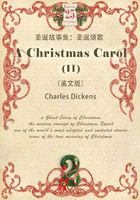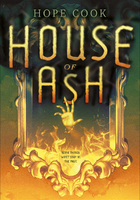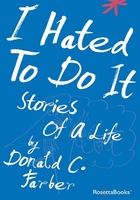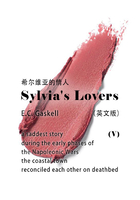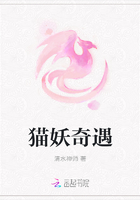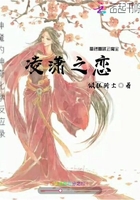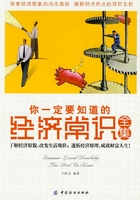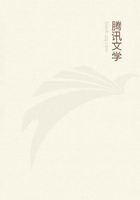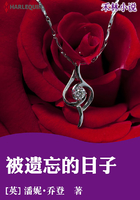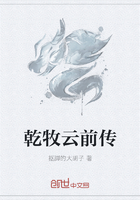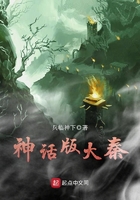Volume 4 of the Letters of T. S. Eliot, which brings the poet, critic, editor and publisher into his forties, documents a period of professional recuperation, personal strain, and spiritual consolidation.
Following the withdrawal of support by his patron Lady Rothermere, Eliot works hard to cultivate others who might help to secure the future of his influential literary-critical periodical The Monthly Criterion. He gradually wins support from ten prominent guarantors: they include his wealthy and well-connected cousin Marguerite Caetani, Princesse de Bassiano; Bruce Richmond, editor of the Times Literary Supplement; and the novelist May Sinclair. The magazine goes back to being a quarterly, resuming its original title, The Criterion; and in time the young publishing firm of Faber & Gwyer takes over the full financial responsibility. Then in February 1929 Faber & Gwyer becomes Faber & Faber, following the ultimate withdrawal of the Gwyer family interest.
Eliot writes of his career at this time: 'I have a good deal more of general publishing business on my hands than before: advising on manuscripts, discussing with authors and possible authors, and general matters of policy and finance. The business is fairly promising; and the management very harmonious.' He tells his brother: 'It is a young firm, so that success is not certain. When it began as Faber & Gwyer it was very weak and inexperienced, and wasted money; since then it has been reorganised, and is much more promising.' He is paid a salary of £400 a year. 'It is nothing like what a man should be earning at my age, and if the firm flourishes, I shall of course insist on more pay. But I can't do that at the present juncture; so I must supplement my income, just as I did ten years ago, by reviewing, articles, prefaces, lectures, broadcasting talks, and anything that turns up. I begin, I confess, to feel a little tired at my age, of such irregular sources of income. I have begun life three times: at 22, at 28, and again at 40; I hope I shall not have to do so again …'
Determined that his work as periodical editor and general publisher should be internationalist above all else, Eliot – an ardent European, committed to cultural cross-fertilization – writes to, and frequently makes personal contact with, a great number of both eminent and emergent writers and thinkers from Great Britain and Europe, as well as from the USA. They include W. H. Auden, Virginia Woolf, H. E. Bates, I. A. Richards, A. L. Rowse, Ernst Robert Curtius, Max Scheler, E. McKnight Kauffer, Allen Tate, Robert Frost, Irving Babbitt, Paul Elmer More, R. P. Blackmur and Lincoln Kirstein (Eliot greatly likes the American magazine Hound & Horn, which is explicitly modelled on The Criterion). In addition, he seeks to promote the careers of various other writers, such as Louis Zukofsky and Edward Dahlberg (who tells D. H. Lawrence that Eliot has been 'wonderfully gentle' to him in London).
He forges links with foremost reviews including Europ?ische Revue (Berlin), Nouvelle Revue Fran?aise (Paris), Revista de Occidente (Madrid), and Nuova Antologia (Milan); claiming of this great enterprise: 'All of these reviews, and others, have endeavoured to keep the intellectual blood of Europe circulating throughout the whole of Europe.'
His own remarkably extensive publications during this period – produced against a background of professional stress (which includes the death from pulmonary tuberculosis, at the untimely age of twenty-eight, of his invaluably astute, devoted secretary Pearl Fassett) and domestic disruption – include the much-loved poems A Song for Simeon, illustrated by E. McKnight Kauffer; 'Perch'io non spero' (Part I of Ash-Wednesday) and Animula; For Lancelot Andrewes: Essays on Style and Order; an illuminating introduction to Wilkie Collins's The Moonstone; 'A Dialogue on Poetic Drama', for a 1928 edition of John Dryden's Of Dramatick Poesie: An Essay; essays including 'The Humanism of Irving Babbitt', 'Second Thoughts on Humanism', and 'Religion without Humanism'; a selection with introduction of Ezra Pound's poems; six talks on 'Seventeenth Century Poetry' for BBC radio; a study of Dante – 'a sort of pamphlet … into which I have worked a few notions … the idea of the Vita Nuova as a manual of sex psychology, and the idea of the difference between philosophy as philosophy and philosophy in poetry'; and an introduction to a translation by Christopher Isherwood (which he considers 'bad') of Baudelaire's Journaux Intimes. He finishes too a translation of Anabase, by the diplomat Alexis St Leger Leger – writing as St-John Perse – which will prove widely influential.
The heavy roster of his responsibilities extends to caring for his wife, who returns home to London after months in a psychiatric hospital in France. Her behaviour continues to be erratic, sometimes sharply perceptive and caring but at other times fractious and accusatory: 'as you can see, he simply hates the sight of me,' she alleges to one friend. Virginia Woolf gossips: 'Tom is in a great taking with Vivien as mad as a hare.' The evidence of the letters to family and friends in this collection shows that Eliot persists in looking after his wife with anxious fortitude.
He finds strength in the dogmatic, exacting Christianity he has espoused. 'I … feel as if I had crossed a very wide and deep river.' Of his hopes, he writes: 'I do not expect myself to make great progress at present, only to "keep my soul alive" by prayer and regular devotions … I feel that nothing could be too ascetic, too violent, for my own needs.'
The principle of editorial selection in this volume, as in the whole series, is straightforward. The letters here printed represent the vast majority that are known to survive: all letters of any importance or significance whatsoever, professional or personal, are to be published. The only letters left out of the printed record are items of little moment or consequence.
For reasons that cannot be exactly determined after all these years, there is only one surviving letter to his brother during the period of this volume, even though he had become accustomed to writing to Henry on a fairly regular basis, at least as often as once a month. Valerie Eliot may well have pinpointed the reason, in her Introduction to volume I of the Letters, when she noted that on the deaths of his mother and brother, in 1929 and 1947, Eliot recovered his correspondence with them and burnt a good part of it. All the same, happily for us, there are still some few good letters to his mother – including one notable letter in which he reflects on the deficiencies of his education at Harvard, and others which comment on topics including household arrangements, Vivien's well-being, and the novel challenges of talks broadcasting. However, the dependably newsy but not altogether candid letters to Charlotte Eliot end with her death in September 1929. The compensation is that Eliot comes to write much more openly and expansively to other friends and associates: this is an aspect of his life which gathers pace in the 1930s, and particularly after 1933 as he comes to feel more settled in his career and so delights in exchanging letters with a remarkable range of poets, critics, students, churchmen, historians, philosophers, theorists and thinkers, and also fans.
It is understood too that at about this time he renewed contact with an old friend, Emily Hale; and it is disappointing that his letters to her are yet embargoed. However, it is worth repeating in this connection what Valerie Eliot wrote in Volume I: 'During the course of his correspondence with Emily Hale, between 1932 and 1947 – when Vivien died, after nine years in a mental home – TSE liked to think that his letters to her would be preserved and made public fifty years after they were dead. He was, however, "disagreeably surprised" when she informed him in 1956 that she was giving the letters to Princeton University Library during their lifetime. It seemed to him "that her disposing of the letters in that way at that time threw some light upon the kind of interest which she took, or had come to take, in these letters. The Aspern Papers in reverse."
'On 24 January 1957 the Librarian wrote stating that the letters would remain sealed until fifty years from the death of the survivor [2020]. TSE's reaction was to ask a friend to incinerate Emily Hale's letters to him.'
It is now known that Eliot's letters to Hale span the years from 1930 to 1956, and that the collection adds up to approximately 1,131 letters and related enclosures. These too should be published in time; but in the meantime we must all wait for a few more years to find out the details of their relationship. For the rest, it is a matter of interpretation or speculation; and that is for the biographers and critics, not for his editors.
JOHN HAFFENDEN
2012


